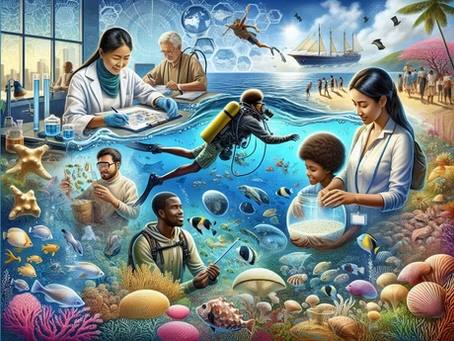Introduction
Marine conservation in developing nations presents both urgent challenges and unique opportunities. For millions of people, especially in least developed countries (LDCs), fisheries are more than food—they are the foundation of livelihoods, trade, and cultural identity. Yet, overfishing, harmful subsidies, and ineffective policies threaten both biodiversity and community well-being. At the same time, innovative solutions, climate-smart planning, and international commitments offer a roadmap toward sustainability.
The Struggle for Sustainability
Marine Fisheries and Food Security
Over three billion people rely on fish as a key source of protein and micronutrients. In many LDCs, fishing provides affordable nutrition and employment, ranking among top exports. However, overfishing jeopardizes these lifelines, undermining both biodiversity and community stability.
- Nutritional security for billions of people
- Economic stability for vulnerable nations
- Livelihoods for small-scale fishers
Overfishing in Developing Nations
Overfishing is not just an ecological issue—it is a survival crisis. As stocks diminish, fishers are trapped in a cycle where poverty drives exploitation, and exploitation deepens poverty. This unsustainable pattern threatens long-term food security and requires urgent reform.
Balancing Livelihoods and Conservation
Fishing is often the sole livelihood in coastal communities. Poverty forces fishers to catch more today at the cost of tomorrow’s resources. Diversifying income, supporting alternative jobs, and promoting sustainable practices can ensure survival without exhausting the oceans.
Navigating International Commitments
The Role of the SDGs
The UN Sustainable Development Goals, particularly SDG 14, link marine conservation with poverty reduction, food security, and health. Achieving these goals requires marine spatial planning and policies that harmonize conservation with development.
The Global Biodiversity Framework
This framework sets ambitious biodiversity protection targets and calls for climate-smart planning. International guidance from UNESCO and the World Bank supports nations, but local implementation remains the ultimate challenge.
Areas Beyond National Jurisdiction
Vast ocean areas outside national borders require international cooperation. Clear governance, climate integration, and equitable planning are crucial to protect biodiversity and maintain ocean resilience globally.
Poverty and Fisheries Subsidies
The Poverty Paradox
Coastal communities depend on fisheries but are trapped in cycles where poverty fuels overfishing. Solving this paradox means improving fisheries management while addressing the root causes of poverty.
Redirecting Harmful Subsidies
Global fisheries subsidies totaled over USD 35 billion in 2018, much of it harmful. Redirecting these funds could reduce overfishing incentives, lift communities out of poverty, and support sustainable practices.
Empowering Local Communities
Local stewardship is central to marine conservation. Community involvement builds resilience, preserves cultural practices, and strengthens social equity.
- Prioritizing ecosystem health in planning
- Integrating local knowledge and traditions
- Ensuring fair access to resources
Climate-Smart Marine Planning
Climate change adds urgency to marine conservation. Climate-smart marine spatial planning promotes proactive, flexible strategies that safeguard ecosystems and communities against rising risks while fostering long-term sustainability.
Innovative Approaches
Technology in Fisheries Management
Satellite monitoring, GPS tracking, and data analytics improve oversight and provide fishers with tools to fish smarter, not harder.
Community-Based Conservation
From Zanzibar to the Philippines, local projects show that empowering fishers to co-manage resources boosts both biodiversity and livelihoods.
International Collaboration
Pooling resources, training, and knowledge across nations strengthens governance, builds capacity, and drives equitable marine conservation strategies.
The Economics of Overfishing
Harmful subsidies distort markets and encourage unsustainable practices. Reframing incentives toward sustainability turns economic challenges into opportunities for growth, equity, and conservation.
Conclusion
Marine conservation in developing nations is a complex interplay of poverty, policy, and ecological urgency. Yet, opportunities abound. Redirecting subsidies, empowering communities, and aligning with international commitments can create a future where marine ecosystems and human livelihoods thrive together. By investing in climate-smart, inclusive, and sustainable practices, nations can turn the tide in favor of both people and the planet.

